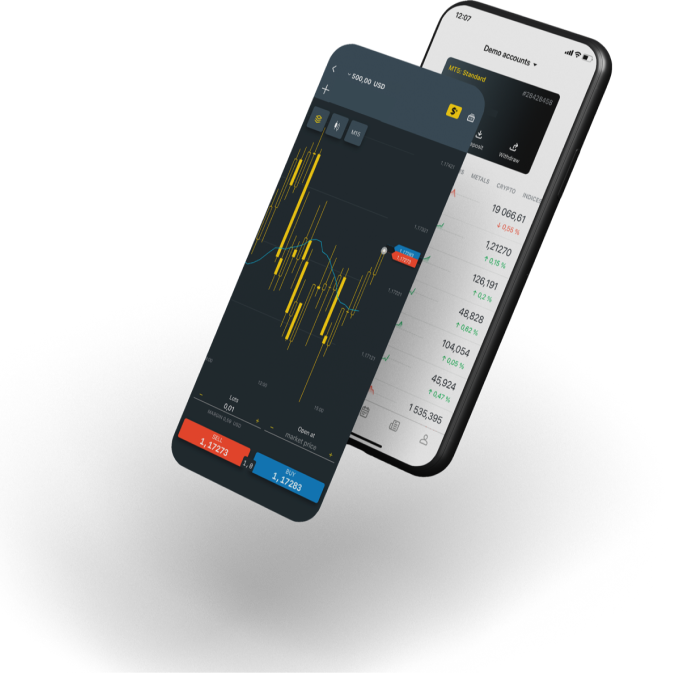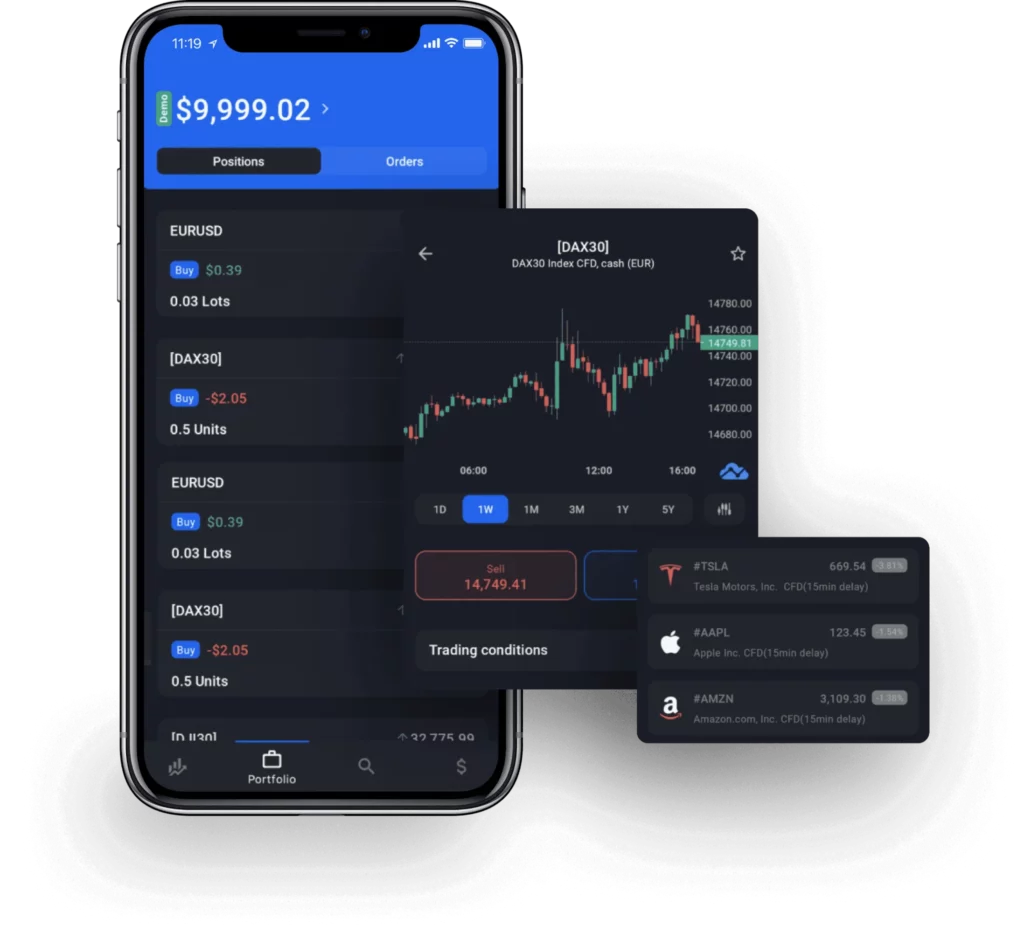What Is a Crypto Exchange?
A crypto exchange is a digital marketplace that connects buyers and sellers of cryptocurrencies. It functions as an intermediary that facilitates trading between fiat money (such as USD or EUR) and crypto assets like Bitcoin, Ethereum, or stablecoins. Some exchanges act as brokers, setting prices and taking commissions; others operate as peer-to-peer platforms, where users trade directly with each other.
There are two main types of exchanges:
| Type | Description | Suitable for |
| Centralized Exchange (CEX) | Managed by a company that provides order execution, liquidity, and security systems. | Traders who value convenience, high liquidity, and customer service. |
| Decentralized Exchange (DEX) | Operates without intermediaries, using blockchain-based smart contracts to execute trades. | Users who prioritize privacy and full control over funds. |
The right exchange depends on the trader’s objectives — short-term trading, long-term holding, or diversification across multiple currencies.
Top Crypto Exchanges for 2026
The crypto industry continues to mature, with established brokers expanding their offerings and new platforms introducing innovative trading tools. Below is a list of five leading exchanges known for their reliability, security, and user experience.
| Commision | Instruments | Min Dep | Leverage | Platforms | ||
|---|---|---|---|---|---|---|
| Zero-commission stocks, FX spreads from ~1.0 pip | Indices Forex Crypto Stocks | $200 | 1:400 | Web Mobile | ||
| From $5 per lot | Forex Commodities Indices Crypto | $100 | Up to 1:400 | AvaTradeGo MT4 MT5 | ||
| No commission, spreads from 0.1 pips | Forex Commodities Indices Crypto | $10 | Up to 1:2000 | MT4 MT5 | ||
| From 0.0 pips (ECN), commission from $2 | Forex Stocks Indices Commodities Crypto | $10 | 1:2000 | MT4 MT5 R Trader cTrader | ||
| No commission, spreads from 0.6 pips | Forex Commodities Indices Crypto | $25 | Up to 1:500 | MT4 MT5 OctaTrader |
eToro
eToro
eToro combines social trading features with an intuitive crypto trading interface. It allows users to follow and copy the strategies of experienced traders, which helps beginners gain market exposure without extensive experience. The platform supports a variety of assets, including cryptocurrencies, stocks, and commodities.
| Key Feature | Details |
| Headquarters | Israel, UK |
| Main Strength | Copy trading and portfolio diversification |
| Accepted Currencies | USD, EUR, GBP |
| Regulation | FCA, CySEC, ASIC |
Advantages:
- User-friendly platform suitable for all skill levels
- Regulated in multiple jurisdictions
- Strong educational resources
Disadvantages:
- Limited access in some countries
- Fees for withdrawals and conversions
AvaTrade
AvaTrade
AvaTrade stands out for its integration of crypto CFDs with advanced analytical tools. It offers a professional trading environment with access to MetaTrader 4 and MetaTrader 5, ideal for those who combine crypto with forex strategies. The exchange focuses on stability, fast execution, and strict risk management protocols.
| Feature | Details |
| Founded | 2006 |
| Minimum Deposit | $100 |
| Regulatory Bodies | Central Bank of Ireland, ASIC, FSCA |
| Crypto Options | Bitcoin, Ethereum, Litecoin, Ripple, and others |
Pros:
- Well-regulated and transparent
- Suitable for both beginners and advanced traders
- No commissions on most trades
Cons:
- No direct crypto ownership (CFD model)
- Inactivity fees after 3 months
FXTM
FXTM
FXTM (ForexTime) has expanded into cryptocurrency trading while maintaining a strong presence in forex markets. The broker offers both spot and CFD trading options, giving users flexibility in their strategies. Its proprietary platform includes market analysis, real-time signals, and risk management tools.
| Feature | Details |
| Headquarters | Cyprus |
| Founded | 2011 |
| Minimum Deposit | $10 |
| Crypto Assets | BTC, ETH, LTC, XRP |
Pros:
- Competitive spreads
- Fast order execution
- Comprehensive educational materials
Cons:
- Limited crypto list
- Regional restrictions for some accounts
RoboForex
RoboForex
RoboForex offers a broad selection of digital currencies alongside traditional markets. The company is recognized for its automated trading capabilities, copy trading systems, and algorithmic support. It provides tight spreads and flexible leverage options, which attract both professionals and algorithmic traders.
| Feature | Details |
| Founded | 2009 |
| Trading Platforms | MT4, MT5, R StocksTrader, cTrader |
| Minimum Deposit | $10 |
| Leverage | Up to 1:500 |
Pros:
- Multiple trading platforms
- VPS and automated trading options
- Wide range of assets beyond crypto
Cons:
- Withdrawal fees apply
- Not available in some regions
Octa
Octa
Octa is known for stable performance, simple account setup, and low-cost trading. Its crypto section supports several major coins and focuses on tight spreads, making it appealing to short-term traders. The exchange also offers negative balance protection and efficient customer communication.
| Feature | Details |
| Headquarters | Saint Vincent and the Grenadines |
| Founded | 2011 |
| Supported Assets | BTC, ETH, LTC, DOGE, BCH |
| Trading Platforms | MT4, MT5, WebTrader |
Pros:
- Low trading costs
- Intuitive interface
- Regular bonus programs
Cons:
- Limited professional tools
- Restricted availability in some countries
Comparison of the Best Crypto Exchanges in 2026
| Exchange | Founded | Regulated | Platforms | Minimum Deposit | Crypto Types |
| eToro | 2007 | Yes | Web, Mobile | $50 | 70+ |
| AvaTrade | 2006 | Yes | MT4, MT5 | $100 | 20+ |
| FXTM | 2011 | Yes | MT4, MT5 | $10 | 10+ |
| RoboForex | 2009 | Yes | MT4, MT5, cTrader | $10 | 30+ |
| Octa | 2011 | Yes | MT4, MT5 | $25 | 10+ |
Each platform offers distinct strengths — from social trading and CFD tools to algorithmic setups and multi-platform support. Selecting the right one depends on trading goals, preferred tools, and budget.
How to Choose the Right Crypto Exchange
Selecting the right crypto exchange depends on personal trading habits, security needs, and access to specific cryptocurrencies. Each platform offers its own structure for fees, liquidity, and verification procedures. To make an informed decision, traders should evaluate several essential factors before registering an account.
Key criteria for selection:
- Regulation and Licensing – Always verify if the platform operates under recognized financial authorities such as the FCA, ASIC, or CySEC. Regulation ensures accountability and compliance with anti-money-laundering standards.
- Available Assets – Look for a variety of trading pairs, including major coins like Bitcoin and Ethereum, as well as emerging tokens for diversification.
- Liquidity – Exchanges with high trading volume offer tighter spreads and faster execution.
- User Interface – A clear dashboard and mobile app improve efficiency, especially for day traders.
- Security Protocols – Two-factor authentication (2FA), cold storage, and encryption methods protect against hacking.
- Customer Assistance – Response time and multilingual support indicate the platform’s professionalism.

Security Measures on Leading Exchanges
Security remains a decisive factor when trading digital assets. The crypto industry has faced multiple cyberattacks, prompting exchanges to strengthen their infrastructure with strict technical and operational protocols. Leading platforms now combine blockchain transparency with institutional-grade protection.
Main security layers include:
- Cold Storage: Most client funds are held offline to minimize exposure to cyber threats.
- Two-Factor Authentication (2FA): Every login or withdrawal requires verification through an independent device or app.
- Data Encryption: Exchanges apply end-to-end encryption to prevent data leaks during transmission.
- Withdrawal Whitelists: Only verified wallet addresses can be used for transfers.
- Regular Audits: Independent audits ensure compliance with both security and financial standards.
Fees and Trading Costs Explained
Fees directly affect trading performance, especially for those who operate with short-term positions. Understanding the cost structure of each platform helps avoid unnecessary losses and plan better capital management. Exchanges typically charge fees in three main categories:
- Deposit and Withdrawal Fees – Some brokers charge a fixed rate or percentage for funding or withdrawing funds.
- Trading Commissions – Makers (who add liquidity) and takers (who remove liquidity) often pay different rates.
- Spreads and Swaps – Price differences between buying and selling quotes, and overnight financing costs, especially in CFD trading.
Fee comparison (approximate values):
| Exchange | Trading Fee | Withdrawal Fee | Spread Type |
| eToro | 0.75% (BTC) | $5 | Variable |
| AvaTrade | Commission-free | Varies by method | Fixed |
| FXTM | 0.1%–0.5% | Up to 3% | Floating |
| RoboForex | 0.01%–0.08% | Depends on currency | Floating |
| Octa | 0% | $0 (depending on payment system) | Floating |
Traders often underestimate the impact of small fees on large-volume transactions. Reviewing the fee policy before executing trades ensures transparency and helps plan long-term profitability.
Tips for Trading Safely
Crypto markets can fluctuate rapidly, and even experienced traders may face unexpected risks. Following disciplined strategies and using protective tools can significantly reduce losses.

Practical safety tips:
- Enable 2FA and strong password combinations.
- Avoid storing large balances on exchanges. Move long-term holdings to personal wallets.
- Verify all URLs. Phishing pages often imitate official sites.
- Use stop-loss and take-profit orders. They automate trade exits during volatility.
- Keep software updated. Outdated trading platforms or devices may expose vulnerabilities.
- Stay informed about regulations. Laws differ by country and affect withdrawal limits or taxation.
Maintaining consistent safety practices is essential for long-term stability and helps build trust in digital finance.
Future of Crypto Exchanges
In 2026, crypto exchanges continue to evolve into complex financial ecosystems integrating AI-driven analytics, decentralized governance, and hybrid trading solutions. The boundary between centralized and decentralized systems is gradually narrowing, as platforms adopt blockchain-based order books while retaining professional liquidity management.
Trends shaping the next phase:
- Integration of DeFi Protocols – More exchanges combine decentralized lending and staking directly into user accounts.
- Expansion of Tokenized Assets – Beyond cryptocurrencies, tokenized versions of stocks, bonds, and commodities gain traction.
- Stronger KYC Automation – Machine learning improves fraud detection and reduces onboarding time.
- Cross-Chain Transactions – Seamless asset movement between blockchains is becoming more common.
- Regulatory Maturity – Governments continue to establish frameworks that legitimize exchanges and protect clients.
These changes point toward a more transparent and efficient crypto economy, where institutional investors and individual traders operate on equal footing.
Frequently Asked Questions
What is the safest crypto exchange in 2026?
Platforms like eToro, AvaTrade, and FXTM remain among the safest due to multi-layered protection and strong regulation.




